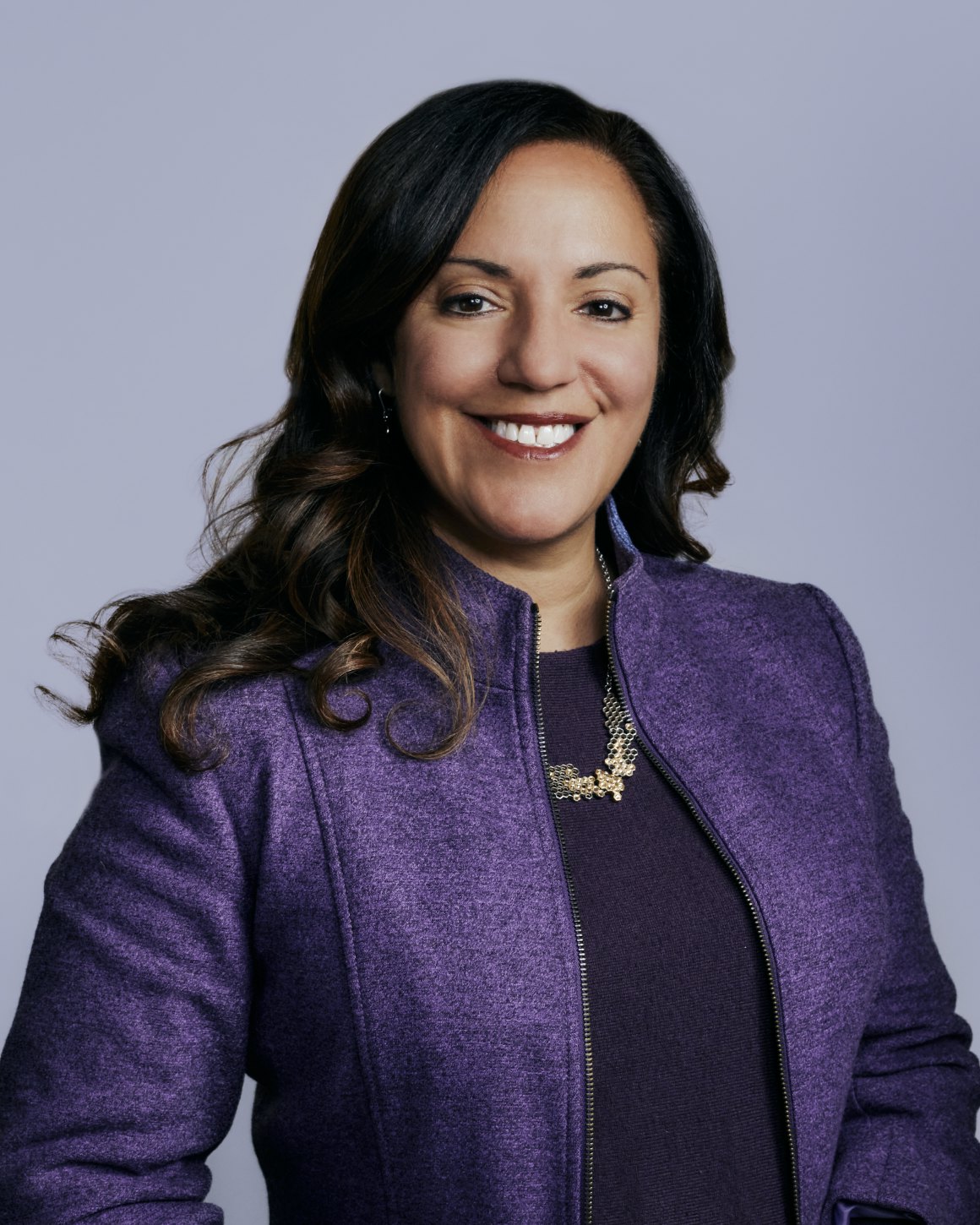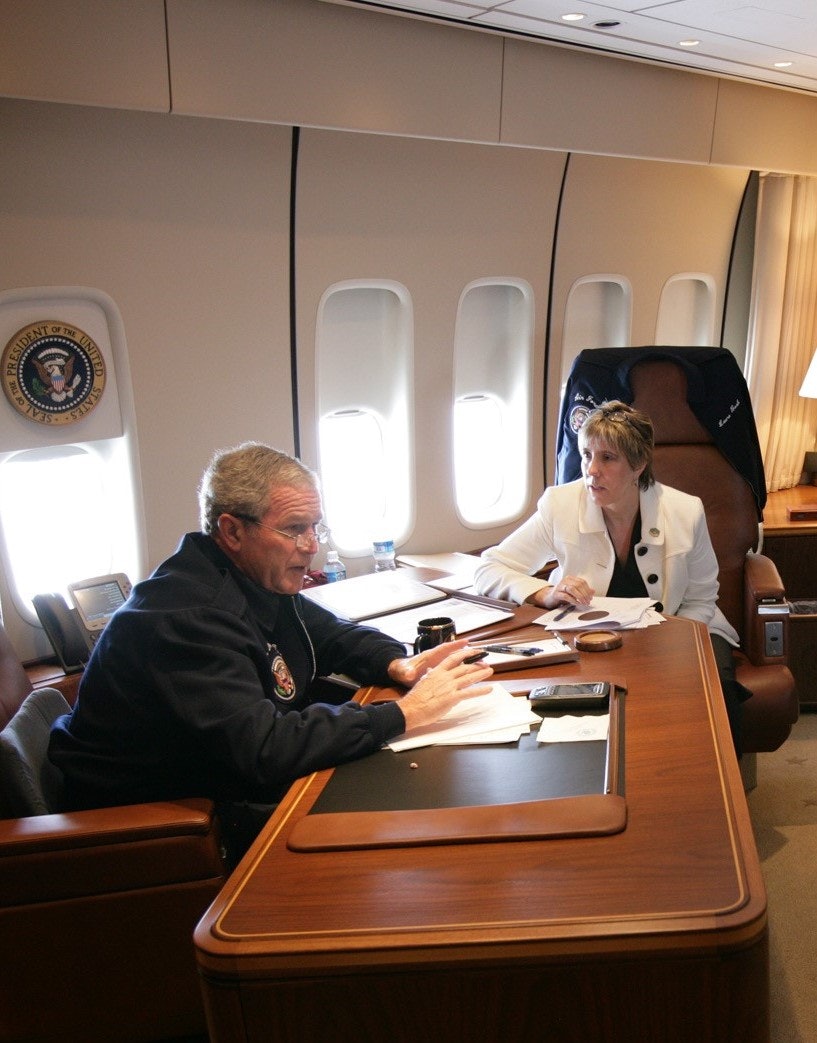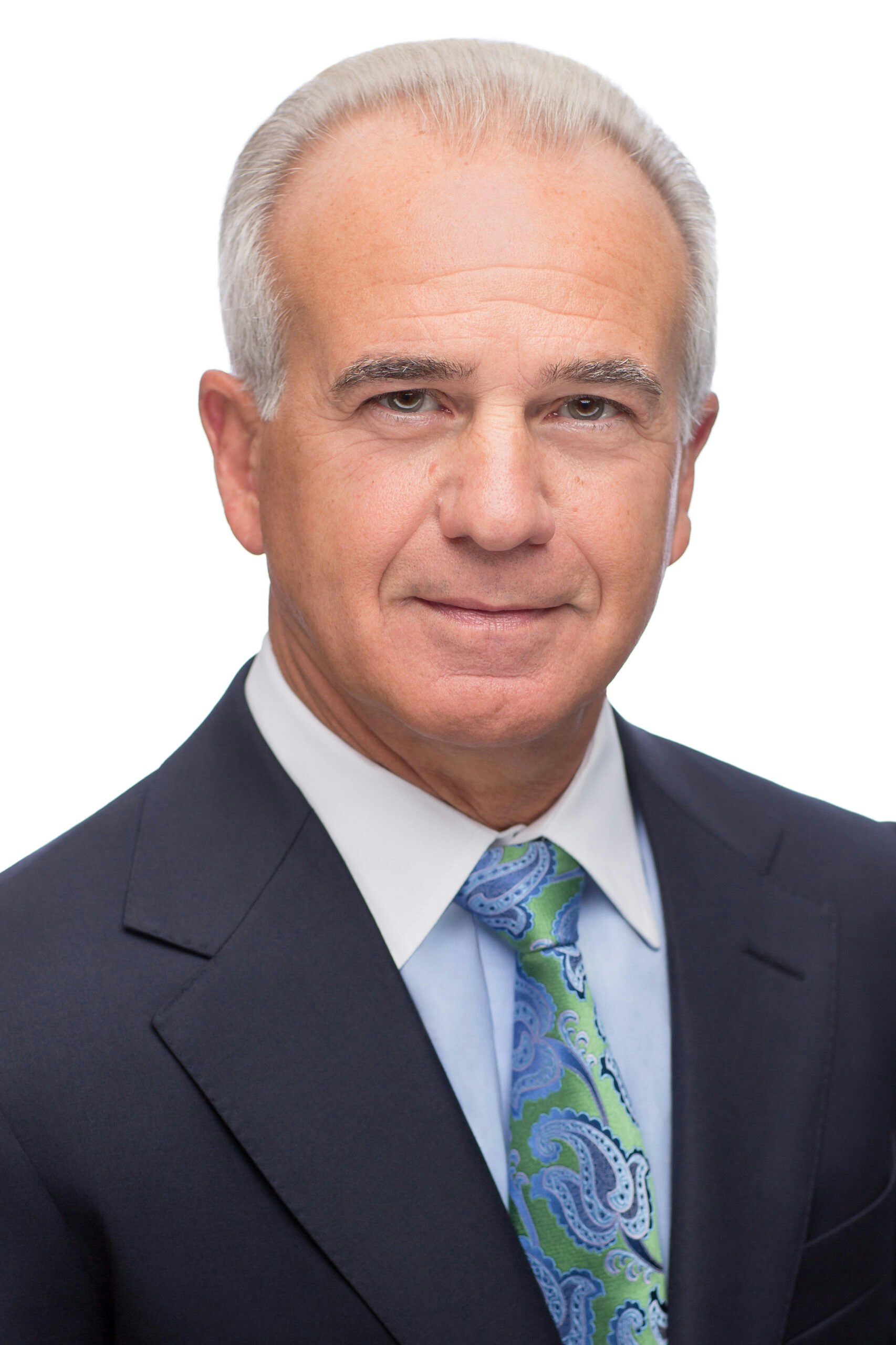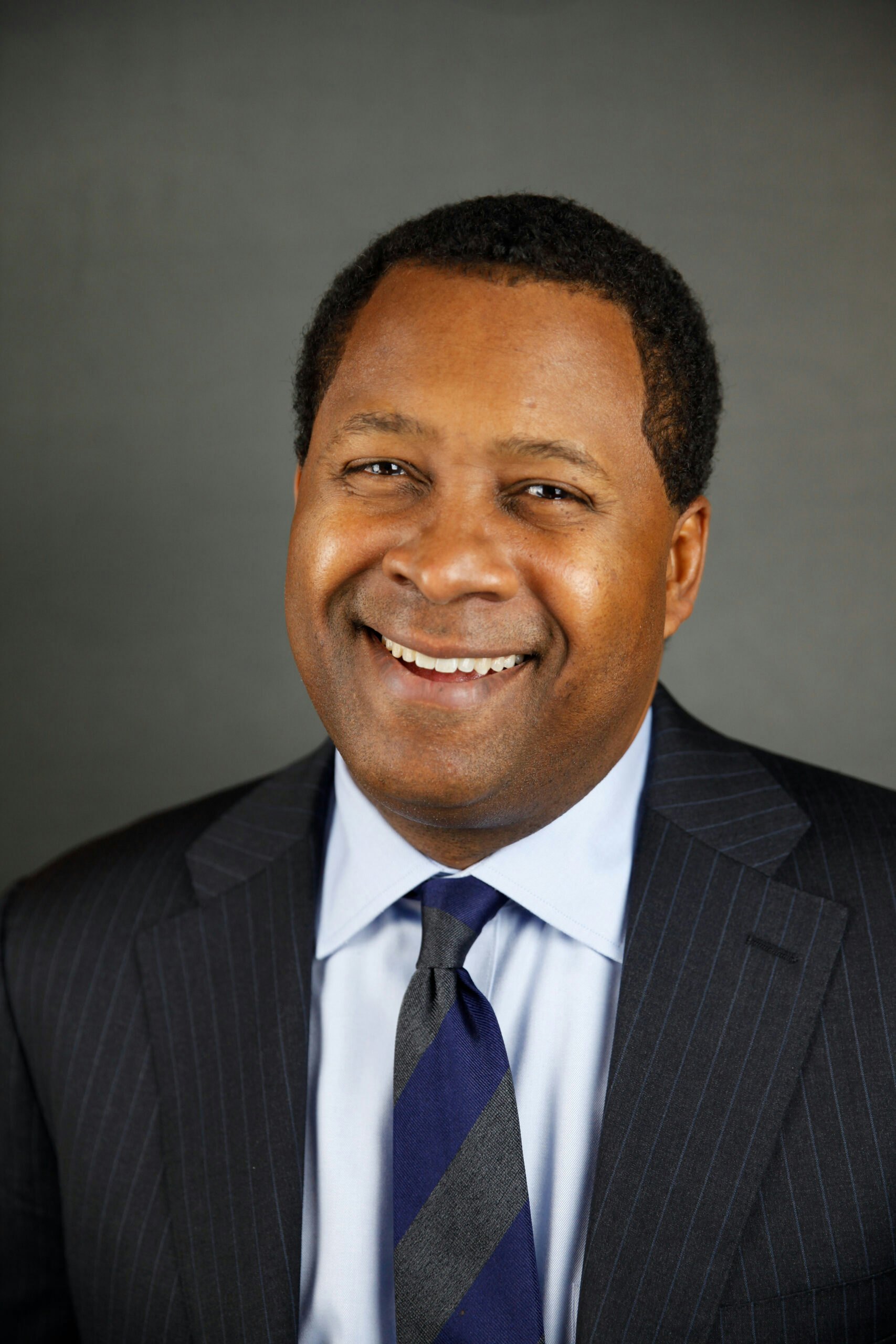Denise Grace Gitsham joins us this month to share election year insights from her new book about “disagreeing better,” how her faith has informed her work as a communications strategist and political commentator, and a vivid example of learning from a mistake.
Q: As a nonprofit, the Bush Center doesn’t engage in partisan political activity, but the Bush Institute’s Strengthening Our Democracy work supports our nation’s institutions and reasserts the value of civic participation and civility. What lessons about how we can better handle political disagreement do you share in your book, Politics for People Who Hate Politics?
As a Bush campaign and White House alumna, I take my cues on disagreeing respectfully from both the former President I loved and served and from my faith. President Bush campaigned on being a “uniter, not a divider,” and the same principle of unity can be found in 179 verses in Scripture, which is why that is the central theme of my book. God cares deeply about unity, which is distinct from conformity. Conformity requires giving up your principles, and “go along to get along,” which is the opposite of good leadership. Being a leader requires standing for principle and clinging to unity with those we disagree, by valuing WHO they are, rather than judging them on the basis of WHAT they stand for.
Another lesson in my book that I struggle to live up to (especially in an election year), is the importance of speaking the truth in love. Again, this is something President Bush did masterfully, which aligns with the teachings of the Apostle Paul (Ephesians 4:15). Many people speak truthfully, but they don’t do so in love. As the saying goes, “truth without love is brutality, and love without truth is hypocrisy.” Love is central to my faith, and clearly defined in 1 Corinthians 13: “Love is patient, love is kind. It does not boast, it is not proud. It does not dishonor others…” and the list goes on. Moreover, doing anything apart from love renders even our best works meaningless. Thus, speaking the truth in love is something we can all do to help preserve our national unity, and ensure that America exists long enough to continue having something to fight for.
A third important principle I expand on is ensuring that we’re principled rather than merely political in our politicking. I know that sounds crazy in our poll-driven era of doing whatever it takes to win. As the saying goes, “if you don’t stand for something, you’ll fall for everything.” I’m proud to have served leaders like President Bush, who were willing to stand on their principles, regardless of the ramifications for doing so. Scripture warns us against being transformed by the world, and advises us to care more about doing the right thing than merely the popular one. The ever-changing whims of culture will always challenge the conservative principles we believe in, but by standing firm on truth, we’ll sleep better at night knowing we did what we thought was best for our country – regardless of election outcomes.
Q: You write that you’ve learned from your own mistakes in this area. Can you give us an example or two?
When I became a candidate for Congress in California in 2016, I had to establish at the outset of my campaign what I believed in and why. I established myself as a person of faith, and explained how that would shape the way I engaged with everyone on the campaign trail, including my opponents. As I quickly learned, that was much easier said than done. In my book, which only contains a fraction of the many mistakes I’ve made in my 25-year career in politics, I write about losing my temper and screaming at a “tracker,” who was a person hired by my opponent to follow and film me, 24/7. Rather than “loving my enemy,” I raged against him – and it was all caught on film (that thankfully never surfaced). Regardless, the incident surprised me, because it exposed how flimsy my commitment to loving my neighbor was. That incident shook me to the core, and actually helped to get me back on track, after asking for his forgiveness and God’s. It taught me that nothing in politics was worth losing my peace over, and the importance of humbly admitting your failures – preferably before they’re exposed.
Q: You made a race of it against incumbent Rep. Scott Peters in 2016. How did that experience inform your work today at your firm, Vitamin D Public Relations, in your book and as a political commentator?
Thanks to my Bush family, I did well in 2016 – but not well enough to win. And truthfully, I’m grateful for that. It was a brutal election year, and being in Congress is a thankless job these days (which makes me all the more grateful for friends like Jodey Arrington (EOP, FDIC), who are holding down the fort). I was a campaign staffer, did my fair share of on-air political commentary, and practiced on K Street as a lawyer-lobbyist before I ran for office, so I combined all three into one career after I lost my race. I launched my public affairs firm, Vitamin D Public Relations, in 2016, to campaign for people, companies, and ideas that inspire me, and chose the name “Vitamin D,” because it evokes two of my favorite things: as a native Californian, the sun, and as a Christian, the Son. Matthew 5:16, which reads “let your light shine before men,” also inspired its name. And today, my talented team of communications strategists and I have the honor of shining a light on those who are changing culture in positive ways.
Additionally, I recently joined the incredible team at NewsNation as a political contributor on The Hill. Having opinions is one thing; getting paid to share them with millions of viewers (and having the best hair and makeup team to boot!) is another. I absolutely love being on The Hill and talking about the issues of the day with people I truly admire, such as Leland Vittert, Chris Stirewalt, and Mick Mulvaney, to name a few. The leadership of NewsNation has made every effort to ensure that our news is fairly presented, and we still have all the fireworks you’d expect in a political show, while disagreeing without being disagreeable. In fact, I love my Democratic counterparts as much as I do my Republican ones, which says a lot about the quality of those they’ve hired.
Q: In the 2000 Bush-Cheney campaign, you were Hispanic Coalitions Coordinator. How have the issues most important to the Hispanic community evolved over the years?
I was honored to serve as Hispanic Coalitions Coordinator, in spite of the fact that I am not Hispanic (which may be news to some of y’all)! Filling that role helped me realize that all Americans, regardless of their ethnic identities, share the same core beliefs and desires, for safe communities, a strong and secure nation, access to a good education, principled leadership, and unfettered opportunities to achieve the American Dream. These desires haven’t changed over the years, though they are expressed in new and different ways today. Ultimately, Hispanics – and all Americans – want what our founders guaranteed in the Declaration of Independence: life, liberty, and the pursuit of happiness. It’s these principles, rather than any specific policy or issue, that draws people to our shining city on a hill.
Q: Can you leave us with a favorite moment or story from your time in the Bush Administration?
The moment that I was most proud to serve occurred on the campaign trail, when President Bush answered a debate question regarding his favorite philosopher/thinker as, “Christ, because he changed my heart.” It was a simple answer that he was asked to elaborate on, but spoken with such clarity and conviction. His answer emboldened me to be more open about my own faith, and spoke volumes about his humility, which made every moment I spent working on the campaign trail, two recounts, and five years in the administration worth it.




























